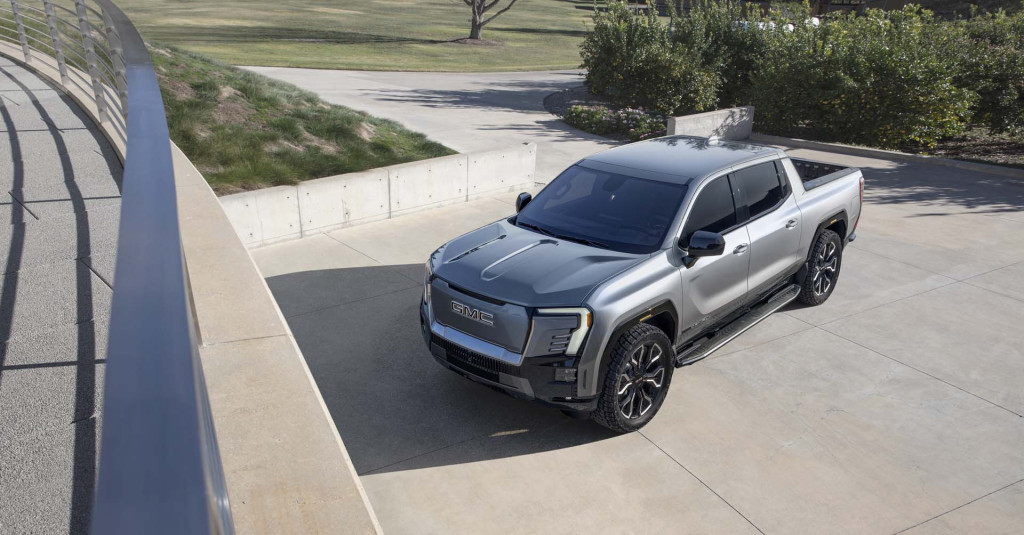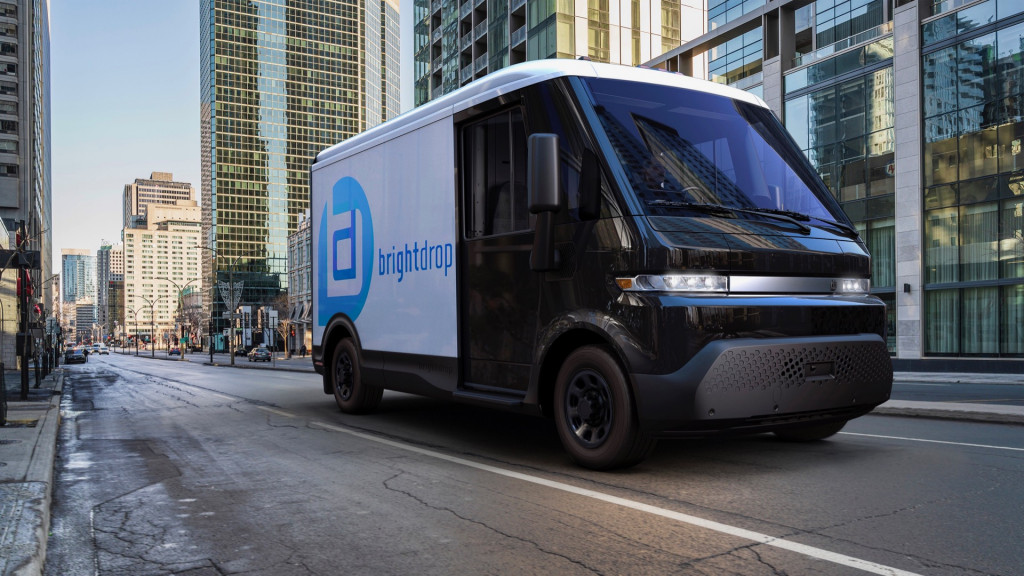In a potentially significant shift for the Detroit automaker, General Motors is considering cylindrical battery cells for future EVs, according to TheElec, a battery-focused South Korean trade publication.
GM has favored pouch cells created with South Korean supplier LG Energy Solution, but could switch to the 4680-format cylindrical cells used by Tesla, the publication reported, adding that this has caused talks with LG Energy Solution over construction of a fourth battery plant for the Ultium Cells joint venture between the two companies to stall.

2024 GMC Sierra EV Denali Edition 1
So far, Ultium Cells, which is backed by a $2.5 billion Energy Department loan, has announced joint-venture battery plants in Ohio, Tennessee, and Michigan—all focused around building the large-format pouch-type cells that GM has said will underpin everything from smaller family vehicles like the Equinox EV to the GMC Hummer EV and BrightDrop cargo vans.
The fourth plant, which GM had previously said was on the way, is conspicuously missing from these announcements.
It’s unclear whether GM might be seeking the cylindrical batteries for its upcoming affordable Ultium platform being developed with Honda, or whether this is for the main Ultium platform, as suspected.

BrightDrop EV410
GM has said that one of the ways it can get to economies of scale and being all-in on EVs is by focusing on the same battery format in virtually every EV product except the smallest cars, so it’s unclear how a shift to cylindrical cells would affect this strategy.
Other automakers, such as Stellantis and Volvo, have also hinted at plans to use cylindrical cells, TheElec noted. In August and September, BMW confirmed a shift to cylindrical batteries in upcoming EVs, after several months of industry reports and rumors.
The cylindrical format also happens to be the one used by three U.S. range-leading brands: Tesla, Rivian, and Lucid. Established automakers have nonetheless avoided cylindrical batteries, although that appears to finally be changing.





